1 in 4 ischemic (clot-related) stroke survivors will suffer another stroke. A previous ischemic stroke puts you at a higher risk of having a second one, but up to 80% of second ischemic strokes may be preventable.
Your risk of a second stroke can be greatly reduced by taking control of your health. Maintaining some healthy lifestyle habits goes a long way. Below are some things you can do.
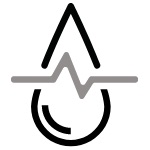
Monitor Your Blood Pressure
High blood pressure is the No. 1 risk factor for stroke. Work with your health care provider to lower your blood pressure to a healthy level.
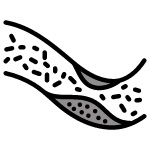
Control Your Cholesterol
Have your cholesterol checked regularly. Medication and a healthy lifestyle can help keep your cholesterol level in the normal range.
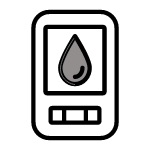
Control Your Blood Sugar
Have your blood sugar/glucose level tested. Some people do not know they have diabetes until something serious, like a stroke, happens.
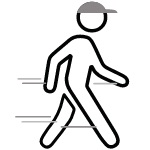
Get Active
Physical activity reduces the risk for high blood pressure, high cholesterol, diabetes and potentially stroke, itself. Staying active can also improve recovery if you have a stroke. Your health care team can help develop a plan that is right for you.

Eat Healthy Foods
A healthy diet helps maintain overall wellness, including healthy blood pressure, cholesterol and blood sugar/glucose levels, which may help prevent a stroke. Dietary patterns in the Mediterranean region are consistently associated with a reduced rate of stroke. Make sure to eat plenty of fresh fruits and vegetables, whole grains, healthy fats like olive oil and limit the amount of processed foods.

Limit Alcohol
If you drink alcohol, limit it to one drink a day for women, or two drinks a day for men. If you do not drink, do not start.
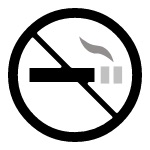
Do Not Smoke
There is no safe amount of cigarette smoke and smoking increases the risk of a stroke. If you smoke, talk with your health care provider about how to quit.
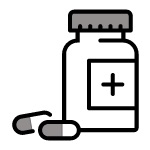
Take Your Prescribed Medications
If your doctor has prescribed medication, be sure to take it exactly as instructed. Do not skip doses. Not taking your medication is a significant risk factor for having another stroke.
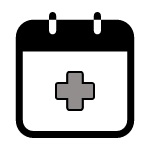
Keep Follow-Up Appointments
Work with your health care provider to create a secondary stroke-prevention plan, and stick with it. Talk with your provider about how to manage any medical conditions you have that may increase your risk of a stroke.

Connect With a Group for Support
Join a group of stroke survivors and caregivers to connect and share information and experiences.
B.E. F.A.S.T.
Remember to B.E. F.A.S.T. if you see or have any stroke warning signs or symptoms. A stroke requires immediate medical attention. If someone shows one or more of these symptoms, call 911 right away.
B – BALANCE – Sudden Loss of Balance
E – EYES – Sudden Double or Blurred Vision
F – FACE – One Side of Face Drooping
A – ARMS – Weak/Numb on One Side
S – SPEECH – Slurred/Garbled, Trouble Repeating
T – TIME – To Call 911 Now!
Avoid a second stroke (or a first)
Healthy lifestyle habits can lower your risk of a stroke. If you have had a stroke, managing chronic health conditions, eating a healthy diet and getting regular exercise can help prevent a second one. These habits can also help you avoid a first stroke and stay stroke-free.
Contact Us
Please fill out the fields below, and we will contact you.